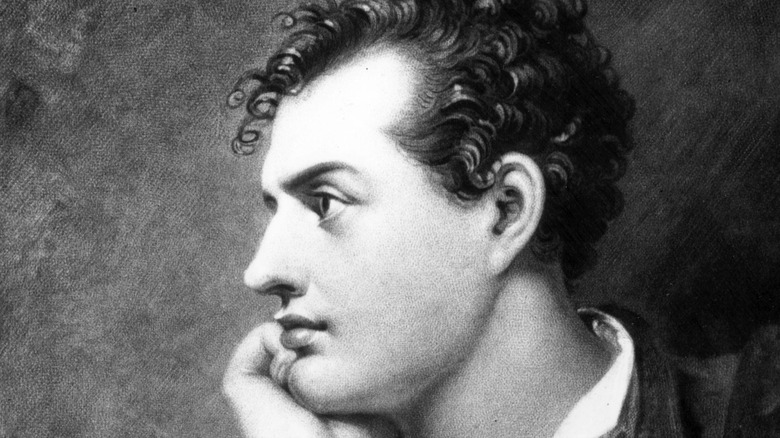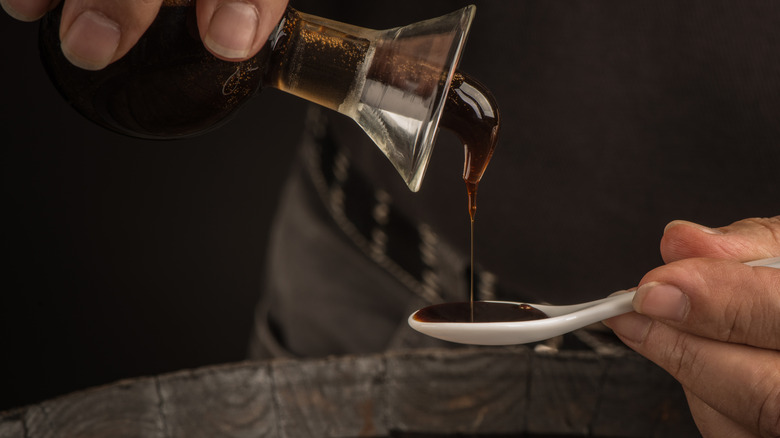How Lord Byron's 'Vinegar Diet' Harmed A Generation Of Artists
While diet culture and the inevitability of the next, wildest trend is not new to anyone, it's not often that we hear of diet fads from 19th century poets. Even if you haven't heard of him until now, the poet Lord Byron made waves in the early 1800s with works such as "Childe Harold's Pilgrimage" and "Don Juan" and vintage "party-boy" lifestyle (via Britannica). (Per Biography, one of his lovers, Lady Caroline Lamb, described him as "mad, bad and dangerous to know.") Lord Byron was also one of the first celebrities to encourage dieting as a means of losing weight.
Historian Louise Foxcroft explains that, like many of the celebrities we know today, Lord Byron worked hard to maintain his figure and struggled with weight gain (via BBC). And while every diet trend under the sun has been suggested and explored, no matter how nonsensical-sounding, Lord Byron's diet habits were extreme, even by today's standards. Moreover, the poet's encouragement of minimizing food intake, drenching foods in vinegar, consuming magnesia, and smoking cigars (to name a few) as means to keep off the pounds comes with a ton of potentially harmful side effects.
The problem with Lord Byron's dieting
According to Foxcroft, Lord Byron existed on very little food intake and the foods he did eat were not exactly superfoods. "In 1816, Byron was living on just a thin slice of bread and a cup of tea for breakfast and a light vegetable dinner with a bottle or two of seltzer water tinged with Vin de Grave. In the evening he stretched to a cup of green tea, but certainly took no milk or sugar." It's also known that Byron would binge and purge, so it's presumed, based on his habits and absolute obsession with dieting, that he suffered from an eating disorder — likely more than one. These struggles eventually led to a huge decline in his health by 1822 (via BBC).
Aside from the obvious and harmful effects of bingeing and purging, starving and malnourishing oneself, constant smoking, and consuming high quantities of stomach-agitating ingredients like vinegar, a resulting issue of Lord Byron's dieting was the effect it had on his peers and followers (via Mental Floss). The poet's open condemnation of people — especially women — who ate what was, in his opinion, "in excess," was particularly harmful because of his notoriety and influence on potentially impressionable people of the time.

